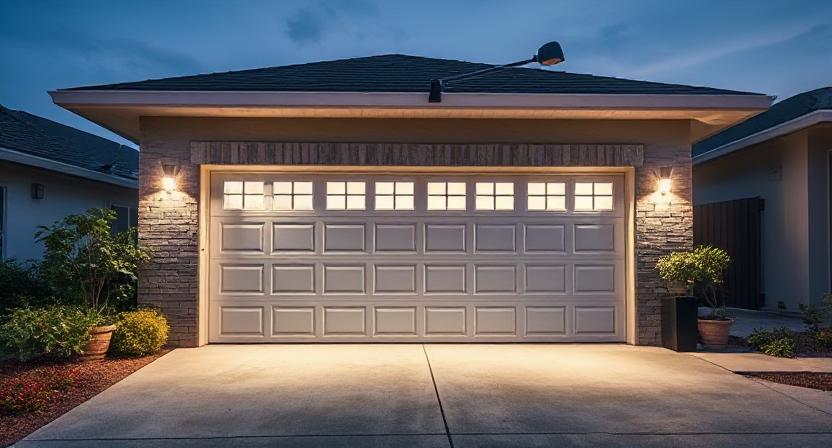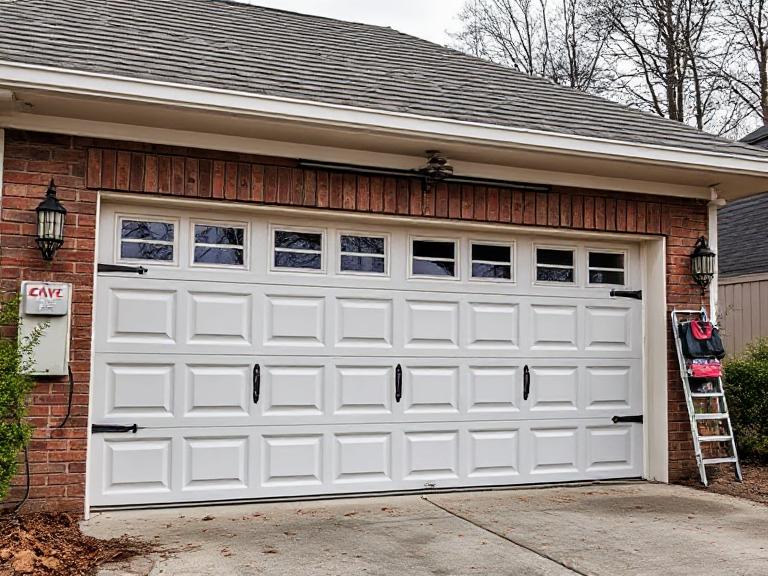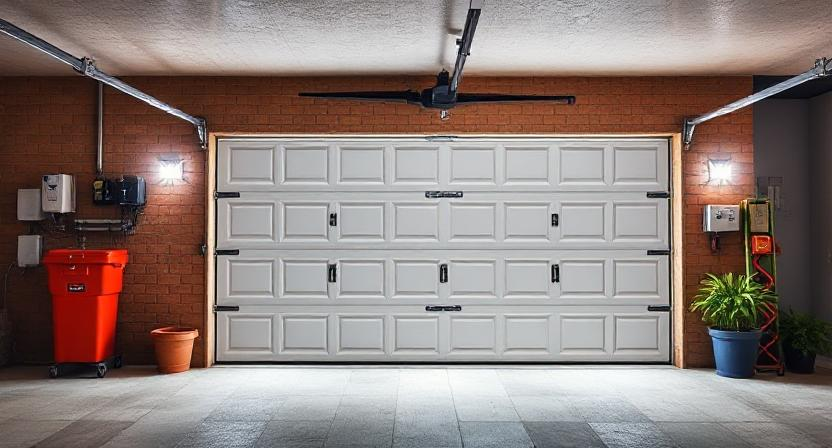Industrial-grade epoxy floor coating in 2025. Your garage’s, warehouse’s, or basement’s drab, broken concrete slab is more than just an eyesore. It’s a lost chance for a surface that can make your area appear professionally planned, is more resilient than traffic, and is simpler to maintain than your worktops.
Industrial-grade epoxy floor coating in 2025 has been hangars’ and factories’ secret weapon for decades. However, in 2025, this powerful substance is emerging from the industrial park and rising to the top of the list for both creative firms and American homeowners. This is your all-in-one guide to knowing why.
What is Industrial Grade Epoxy Floor Coating?
Fundamentally, epoxy consists of two components: a hardener and a resin. They react chemically when combined to form a hard plastic substance that adheres to concrete very firmly.
“Industrial grade” refers to a formulation intended for high performance. In contrast to store-bought, thinner kits, these systems are:
- High-Solids: Containing more active ingredients and less solvent, resulting in a thicker, more durable coat.
-
Professional Application: Typically requires specialized equipment and knowledge to install correctly.
-
Engineered for Abuse: Built to withstand heavy machinery, chemical spills, intense foot traffic, and thermal shock.
Why Industrial Epoxy is Exploding in Popularity for 2025
The shift towards high-performance materials in residential and commercial spaces is a defining trend of the decade. People aren’t just looking for a finish; they’re looking for a long-term solution.
The driving forces behind its 2025 popularity include:
-
The Rise of the “Prosumer”: Homeowners want commercial-grade quality in their personal spaces, from epic home garages to durable basement rec rooms.
-
Focus on Health & Hygiene: Especially post-pandemic, seamless, non-porous surfaces that resist bacteria and mold and are easy to sanitize are in high demand.
-
Aesthetic Revolution: Modern epoxy isn’t just gray. It incorporates flakes, metallics, and even customizable 3D effects, making it a designer’s dream.
Key Benefits of Industrial Epoxy Floor Coating
Investing in this coating is about more than just good looks. The functional advantages are profound.
-
Unmatched Durability: Resists heavy impacts, abrasions, and stains from oil, grease, and most chemicals. It won’t chip or peel like paint.
-
Seamless & Hygienic: With no grout lines or seams, there’s nowhere for dirt, moisture, or allergens to hide. Cleaning is a simple sweep and mop.
-
Safety Enhancements: Options for non-slip additives and high-gloss finishes that improve light reflectance (reducing lighting costs and increasing safety) are readily available.
-
Long-Term Cost-Effectiveness: While the initial investment is higher than paint, its incredible longevity means you won’t be recoating every few years.
-
Customizable Aesthetics: From simple solid colors to intricate flake systems and glossy metallic finishes, the design potential is vast.
2025 Trends in Industrial Epoxy Flooring
This year, we’re seeing innovation focused on sustainability and style.
-
Greener Formulas: Low-VOC (Volatile Organic Compound) and VOC-compliant epoxies are now the standard, improving indoor air quality during and after installation.
-
Metallic & 3D Effects: Using decorative metallics and clear topcoats to create stunning, depth-filled effects that look like polished stone or moving water.
-
UV-Stable Topcoats: Preventing yellowing from sun exposure, making epoxy a viable option for sunrooms and certain outdoor applications.
-
Advanced Quartz Systems: Combining epoxy with broadcast quartz aggregates for the ultimate in slip resistance and texture, perfect for restaurant kitchens and pool decks.
Ideal Applications for Industrial Epoxy in the USA
Where does this powerful coating make the most sense?
-
Commercial & Industrial: Warehouses, manufacturing plants, auto repair shops, commercial kitchens, laboratories, and showrooms.
-
Residential Garages: The #1 use for homeowners, transforming a dusty garage into a clean, organized, and impressive space.
-
Basements & Rec Rooms: Creating a moisture-resistant and comfortable floor for home gyms, playrooms, and bars.
-
Retail Spaces: Boutiques, breweries, and restaurants use it for its modern aesthetic and ability to handle high traffic.
-
Agricultural Buildings: In barns and milking parlors for its resistance to moisture and corrosive substances.
The Installation Process: What to Expect
A proper installation is a multi-day process that should only be done by experienced professionals.
-
Surface Preparation (Most Important Step): The concrete is diamond-ground or shot-blasted to create a perfectly clean and profiled surface for the epoxy to mechanically bond to. Any shortcuts here guarantee failure.
-
Crack & Joint Repair: Any cracks are routed out and filled with specialized flexible epoxy compounds.
-
Primer Application: A primer coat is applied to ensure perfect adhesion of the topcoats.
-
Base Coat & Decoration: The colored epoxy base coat is applied. Decorative flakes are broadcast into the wet epoxy at this stage if desired.
-
Top Coat: A clear, durable polyurethane or epoxy topcoat is applied to seal in the flakes, provide UV resistance, and add the final layer of protection and gloss.
Industrial Epoxy Floor Coating: Pros and Cons
| Pros | Cons |
|---|---|
| Extreme Durability & Longevity | Higher Upfront Cost than paint or simpler coatings |
| Easy to Clean and Maintain (resists stains and chemicals) | Complex Installation requires professional expertise for a lasting result |
| Slip-Resistant and Safety Options are widely available | Curing Time requires avoiding use of the space for several days |
| Customizable Aesthetic with endless color and flake combinations | Surface Preparation is Noisy and Dusty (but necessary) |
| Increases Property Value with a high-quality, finished look | Can be Slippery When Wet if a non-slip additive is not used in the topcoat |
Cost Considerations for 2025
The cost for a professional industrial epoxy floor coating in the USA varies widely based on:
-
Square Footage
-
Condition of the Existing Concrete
-
Number of Coats and Decorative Elements
-
Geographic Location
For a basic flake system, homeowners can expect to invest between $5 and $12 per square foot. A more complex metallic or quartz system can range from $8 to $15+ per square foot. Always get multiple detailed quotes from certified installers.
How to Choose a Reputable Epoxy Contractor in the USA
This is not a DIY project for beginners. Choosing the right pro is critical.
-
Check Credentials: Look for licensed, insured, and bonded contractors with specific experience in epoxy.
-
Read Reviews: Scour Google, Facebook, and the Better Business Bureau for customer feedback.
-
Ask for a Portfolio: A reputable company will have a gallery of past projects.
-
Get Detailed Quotes: The quote should detail every step: preparation, materials (brands and amounts), number of coats, and warranty information.
-
Ask About the Warranty:A strong warranty (often 5-10+ years for residential, 1-3 for heavy industrial) is a sign of a company that stands behind its work.
Industrial Epoxy Floor Coating 2025 FAQ
1. Can I apply industrial epoxy myself?
DIY kits exist, but they cannot match professional industrial-grade systems. The specialized equipment and technical expertise involved make this job best suited for certified professionals.
2. How long does an industrial epoxy floor last?
Professionally installed, an industrial epoxy floor can last 10 to 20 years in residential settings and even longer in commercial settings with proper maintenance. Installation quality is crucial.
3. Is epoxy flooring slippery?
A clear gloss topcoat can be slippery when wet, but professionals can add anti-slip additives or use a textured broadcast flake system to enhance safety. Consult with your installer for options.
4. Can epoxy be applied over existing concrete cracks?
Yes, but cracks must be widened and filled with a flexible epoxy filler before applying the floor system. This prevents them from showing through.
5. How do I maintain and clean my epoxy floor?
Maintenance is simple: sweep or dust mop regularly, and for deeper cleaning, use a neutral pH cleaner with a soft mop. Avoid harsh chemicals like bleach or ammonia to protect the finish.

hello friends
my name is Sumit kumar. I am the owner of this website and I share only garage door and lift master information and only informational posts on my website. And I have written this post myself and have given you only a good guide and information.


